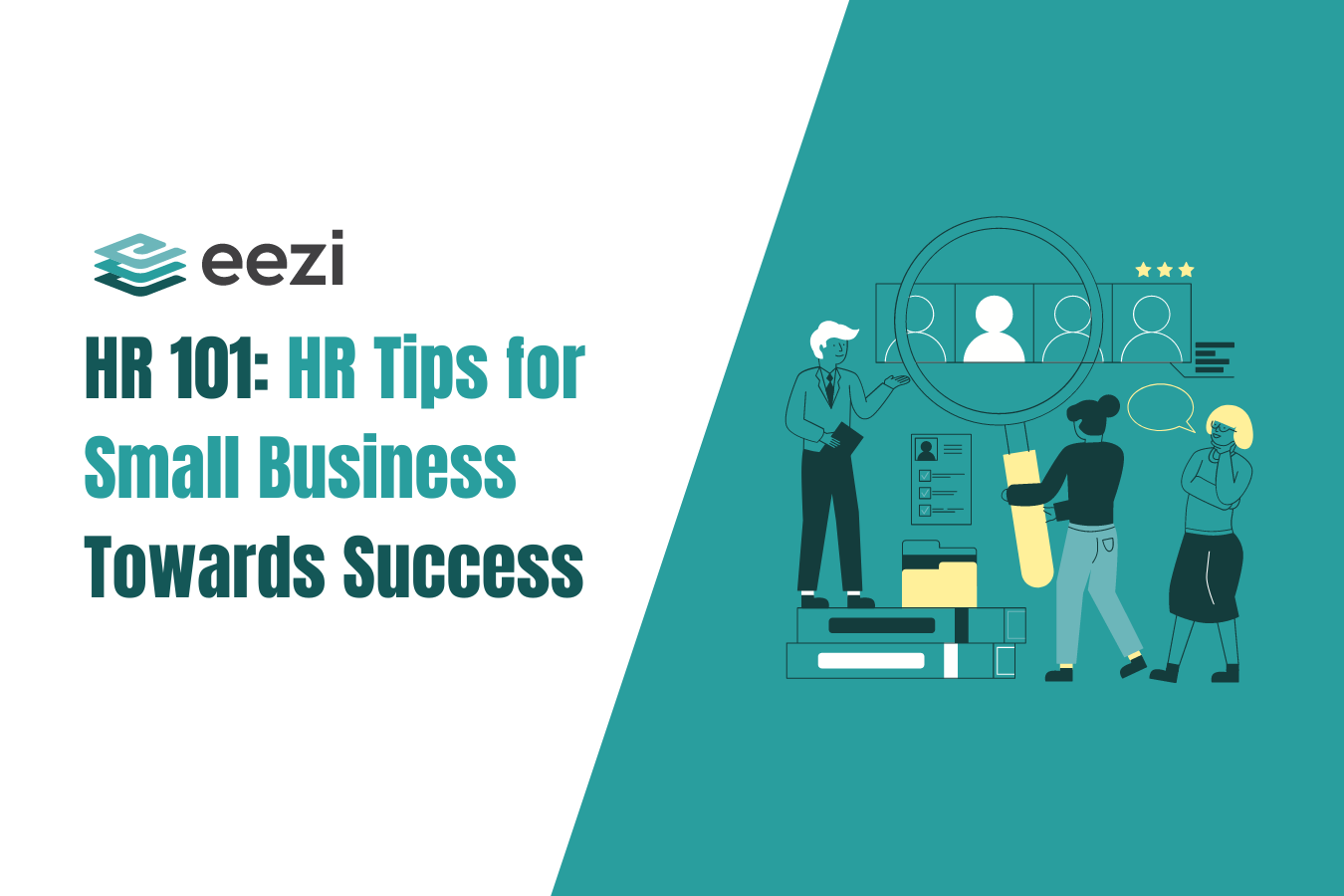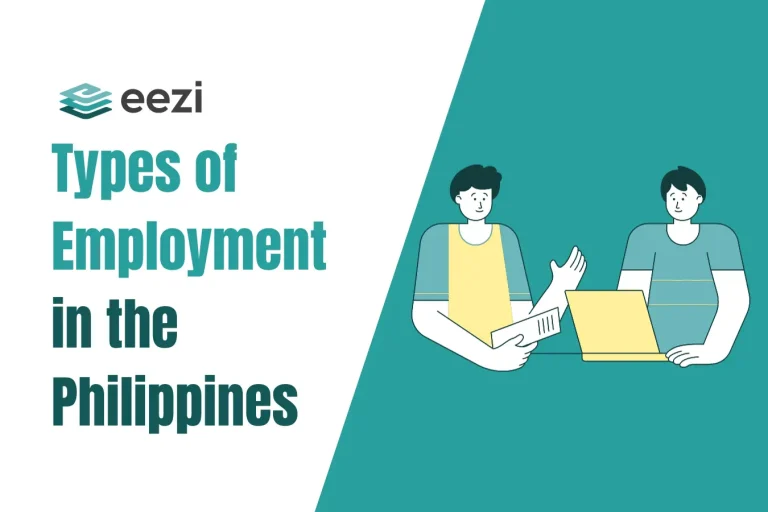Here are some HR tips for organizing a human resource team for your small business and leading your business to the right path.

Starting out a small business is no small project. You need the right set of knowledge and skills, good connections, and a bit of luck to make it successful. And you’ll need all the help you can get. That’s why we’re giving you this little list of tips to help you move things along.
What is HR, and why is it important for small businesses?
HR or human resources, is a vital part of a business that determines the success of your company’s workforce. Essentially, HR makes your business progress more smoothly.
Moreover, it is the HR department’s job to relieve the burden on small business owners. As such, they handle workforce issues and manage employees.
The task of the HR team is to deal with the day-to-day requirements of managing the human resources of the company. Human resources management requires a specific set of skills that a small business owner may not naturally possess.
Most of the tasks are time-consuming and as the business grows, small business owners may not have the time to attend to these tasks. Not giving enough time and attention to human resource management may well lead to the company’s detriment.
Main HR processes and functions

Recruitment and Hiring Process
One of the most important functions of the HR team is to facilitate the recruitment and hiring process. The HR department takes charge of managing everything from start to finish.
This includes deciding on the roles to be filled, constructing job descriptions for each role, and establishing job requirements and necessary skills.
Furthermore, they make job postings, screen applicants, interview candidates, and select the best ones. Lastly, they oversee the onboarding process for new employees.
Training and Development
One of the first processes new employees go through in a company is training. Training ensures that they have the best knowledge and skills to perform their roles. However, training must not only be for the new employees. Even older workers of the company can also benefit from it. For instance, training ensures that everyone has up-to-date knowledge and techniques. These skills will boost the productivity of the company and the quality of the products and services it provides.
Another advantage of providing training for even the senior employees is satisfaction and better experience for employees. This is a strategic move that results in better retention rates. Employees, in general, like to see that they are achieving growth no matter how long they have been performing their roles.
Performance Management
Performance management is a process the HR department conducts in order to measure and maintain or improve employee performance. Additionally, this improves the company as a whole. Furthermore, this involves regular performance reviews to assess the current performance levels of the employees. Lastly, this sets the performance goals for each individual or team.
The HR department may disclose the results of the performance reviews to the employees. This informs them of their current performance in line with the goals of the company. They may discuss the ways that the performance may be improved further or the possible incentives for stellar performances.
Employee Relations and Succession Planning
Employee relations is a part of HR management that deals with issues between employees and the management, like complaints. Good and ideal employees can be difficult to find, which is why HR is tasked to maintain a good relationship with all employees and foster a positive working environment. Employee relations also involve the creation and enforcement of fair and reasonable company policies.
Succession planning is the process of establishing the protocol or plan to follow in the event that employees in key positions leave the company. Succession planning includes creating a talent pool of individuals in the company who have the ability and dedication to take up senior or key positions immediately when it becomes vacant. Choosing the individuals to include in the talent pool depends on training and performance reviews.
eezi HR Guide
See how you can keep employee engagement and productivity high.
Employment Law Compliance
Compliance with employment laws and regulations is a necessity. Failure to comply with the employment laws will only jeopardize the business with legal issues. In the Philippines, the employment laws and regulations are enumerated in detail within the Labor Code and further supported by existing labor laws.
Employment law compliance is one of the tough tasks on the HR department’s shoulders. Tracking down every law and regulation and ensuring the company is compliant with every aspect can be rigorous and tedious. However, it is essential for the company to avoid legal problems and ensure fairness for all employees.
Compensation and Employee Benefits
Another important role of HR is to delegate some of the company’s budget to the employees’ compensation. Compensation is the basic salary paid to each employee for their services. HR is in charge of computing how much each employee will receive for each payroll cycle, which includes deductions, mandatory and government contributions, and/or bonuses and other monetary awards.
Employee benefits depend on an employee’s contract with the company. Although there are mandatory benefits awarded to employees as dictated by laws and regulations, other benefits are also given by the company. It is HR’s job to make sure that the employees receive their benefits.
HR Data Analytics
The HR department holds all pertinent information about each employee. These include medical and company records like time records and leaves, on top of their personal and contact information. Furthermore, HR also holds data on employee training and performance reviews.
One of the keys to a successful business is making wise, timely, and informed decisions. It is the job of HR to utilize the data they have in decision-making processes that will determine the future of the company.
HR Tips Small Business Owners Must Know

Don’t get lazy on the hiring process
One ingredient to success is to have the right and best people for the job. This means that being meticulous when it comes to recruitment and hiring is a good thing. The screening process must be relevant and reasonable. Furthermore, it must lead to the best applicants depending on the description of the job. Conduct an in-depth interview to learn further which applicants are the best fit for the job.
Familiarize yourself with employment laws
Every small business owner or HR must be familiar with labor or employment laws. In addition, they make sure that the business is compliant with them. Failing to do so can land the business in heaps of trouble, legal-wise. As the business grows, it might be best to hire an expert on employment laws to handle the company’s compliance.
Foster a good working environment
A good working environment makes employees happy, and in return, they become more productive. Having more productive employees raise the productivity of the company. Furthermore, it improves the quality of the products and services as a whole. A positive working environment also encourages employees to stay longer in the company. As a result, it raises the company’s retention rate and lowering the turnover rate.
Create an employee handbook
An employee handbook serves as the guidelines for the standards that an employee must uphold and the company policies and protocols that must be kept in mind and followed. The employee handbook also serves as a basis in settling disputes or disagreements.
Conduct training and seminars
Allowing for professional growth within the ranks of the employees is another way to keep them happy and improve their experience with your company. One way to encourage growth is to provide the employees with relevant training and seminars to further their knowledge and improve their skill sets.
Conduct performance reviews regularly
Even a small business needs to make sure that the business is progressing toward its goals at the right pace. Conducting performance management helps the employees better understand the goals of the company and the level of performance that is expected of them. Performance reviews help employees realize which areas they need to work on in order to achieve their goals.
Give a competitive salary
Usually, the first thing that attracts an applicant to your company is the amount of basic salary given to the position. Giving a competitive salary coupled with good working conditions helps employees to choose your company and stay longer with you.
Give rewards and incentives
On top of having a competitive salary and good working conditions, giving out rewards and incentives for stellar performance is one way to sweeten the deal even further. It helps push employees to even greater heights in performance because they have something nice to look forward to. This also helps in improving retention rates because employees tend to stay longer in a company that rewards their hard work.
Related:
Have an efficient payroll system
Delayed salaries are one of the major causes of employee dissatisfaction. Invest in an automated HR and payroll system. Automating HR tasks and processes makes HR duties easier and faster. A good HR and payroll system like eezi‘s cloud-based HR and payroll software can automate the tedious and time-consuming tasks of HR while maintaining security and privacy and keeping errors to zero when it comes to payroll.



